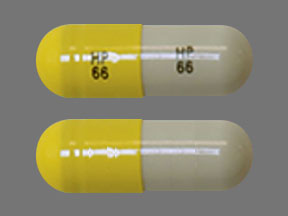
Flagyl Coupons & Savings Card – Discount Prices from $52.32
Brand for: Metronidazole
My prescription
Edit
375MG, Metronidazole (14 Capsules)
Select pharmacy

CVS
$71.67
COUPON PRICE
Walgreens
$52.32
COUPON PRICE
Albertsons
$117.31
COUPON PRICE
Walmart
$132.66
COUPON PRICEFlagyl savings card
Show this card to your pharmacist
Walgreens
$52.32
BIN
ID
PCN
GRP
011867
LHFF4CCD78
HT
LABH001
Powered by
Related nitroimidazole antibiotics prescriptions
More prescriptions for skin infection
Related nitroimidazole antibiotics prescriptions
More prescriptions for skin infection
Price history for Flagyl (brand) & Metronidazole (generic)
14 Capsules, 375MG
Average retail price for Flagyl
Average retail price for Metronidazole
Average SaveHealth price for Metronidazole
Our price history data is based on aggregated prescription data collected from participating pharmacies in America. Our prescription data updates daily to reflect the latest price changes. If you notice a missing data point, it means there wasn't sufficient data available to generate a monetary value for that date.
Over the last 12 months, the average discount price of Flagyl is $95.39 using the SaveHealth savings card. That's an average savings of 60.60% on Flagyl with our discount card.
*Retail prices are based on pharmacy claims data, and may not be accurate when we don't have enough claims.
Flagyl (Metronidazole) dosage forms
Dosage Quantity Price from Per unit 375MG 14 Capsules $71.67 $5.12 375MG 10 Capsules $56.42 $5.64 375MG 20 Capsules $94.54 $4.73 375MG 21 Capsules $98.35 $4.68 375MG 30 Capsules $132.66 $4.42
| Dosage | Quantity | Price from | Per unit |
|---|---|---|---|
| 375MG | 14 Capsules | $71.67 | $5.12 |
| 375MG | 10 Capsules | $56.42 | $5.64 |
| 375MG | 20 Capsules | $94.54 | $4.73 |
| 375MG | 21 Capsules | $98.35 | $4.68 |
| 375MG | 30 Capsules | $132.66 | $4.42 |
What is Flagyl mostly used for?
Flagyl, also known as metronidazole, is mostly used to treat various types of bacterial and parasitic infections. It is commonly prescribed for infections of the gastrointestinal tract, such as those caused by Clostridium difficile, as well as for certain sexually transmitted infections like trichomoniasis. Additionally, it is used to treat infections of the skin, joints, and respiratory tract.
What STD will Flagyl treat?
Flagyl, also known as metronidazole, is commonly used to treat trichomoniasis, a sexually transmitted infection caused by the parasite Trichomonas vaginalis.
What foods should you avoid while taking Flagyl?
While taking Flagyl (metronidazole), it is important to avoid alcohol. Consuming alcohol while on this medication can lead to unpleasant side effects such as nausea, vomiting, flushing, and a rapid heartbeat. Additionally, it is advisable to avoid foods and drinks that contain alcohol, such as certain sauces, vinegars, and some desserts. Always consult with a healthcare provider for personalized advice.
Why would you use Flagyl?
Flagyl, also known as metronidazole, is commonly used to treat various types of infections caused by bacteria and certain parasites. It is often prescribed for conditions such as bacterial vaginosis, trichomoniasis, and certain types of gastrointestinal infections, including those caused by Clostridium difficile. It may also be used in combination with other medications to treat Helicobacter pylori infections associated with ulcers.
Does Flagyl stop diarrhea?
Flagyl, also known as metronidazole, is an antibiotic that can be used to treat certain infections that may cause diarrhea, such as those caused by specific bacteria or parasites. However, it is not a general treatment for diarrhea itself. It is important for the individual to consult a healthcare provider to determine the underlying cause of the diarrhea and whether Flagyl is an appropriate treatment.
